Down & Dirty: Discovering Our True Nature Through Having Our Hands In It

Human Nature
Spending time in nature whether going for a walk in a forest or gardening, we may just discover what it is to be human, and what our true ‘nature’ really is…
Green Expectations
I spent the morning with the lovely members of Native Plants QLD Gold Coast. I learned about plant propagation and literally getting my hands in the dirt being shown how to prepare and pot plant cuttings. There is so much to discover from the combined knowledge, experience and passion of others.
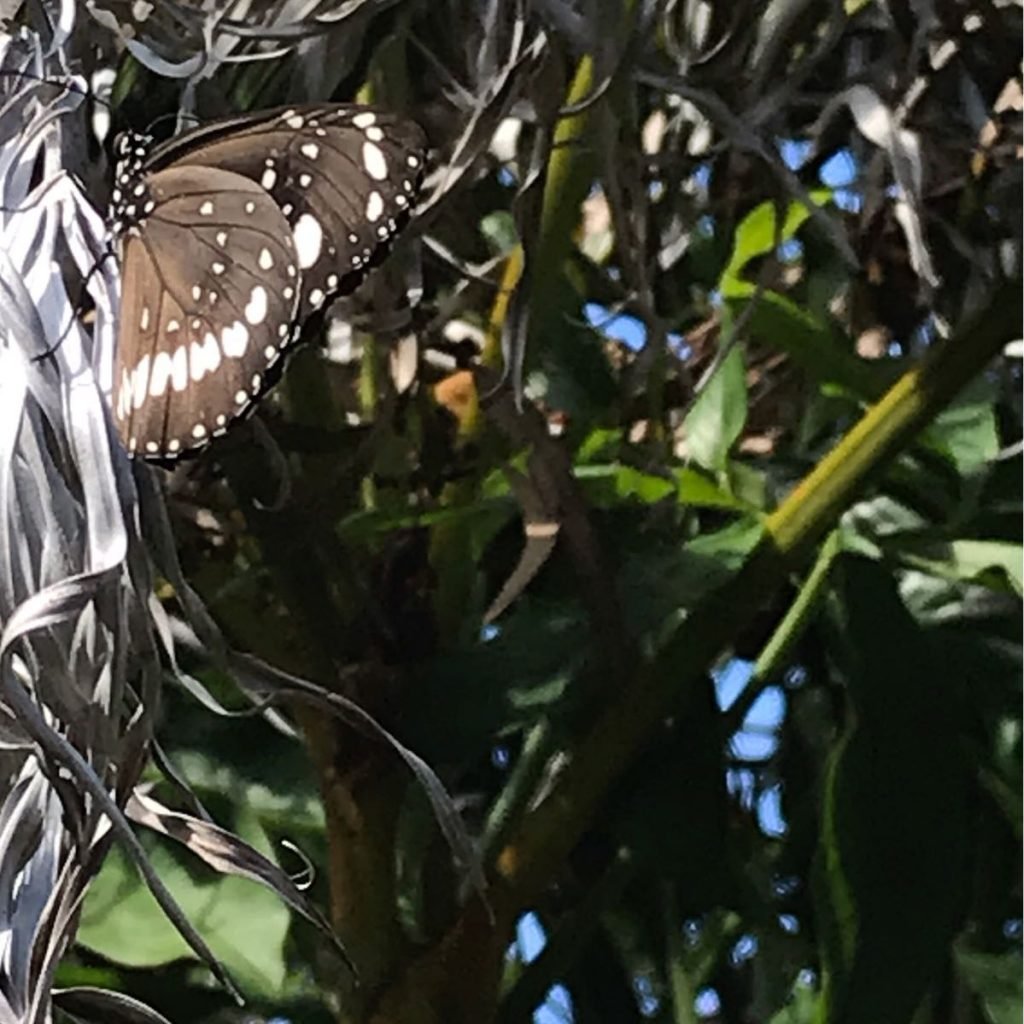
Butterfly Garden
A few days earlier I attended an information evening by the same group. It was on how to attract butterflies to your garden by planting butterfly food and caterpillar host plants. Graham McDonald, who is a commercial native plant grower shared his knowledge, passion and photographs of local butterflies.
I walked away both times with some young plants to grow in my native garden patch at home, as well as shared connection for our unique flora.
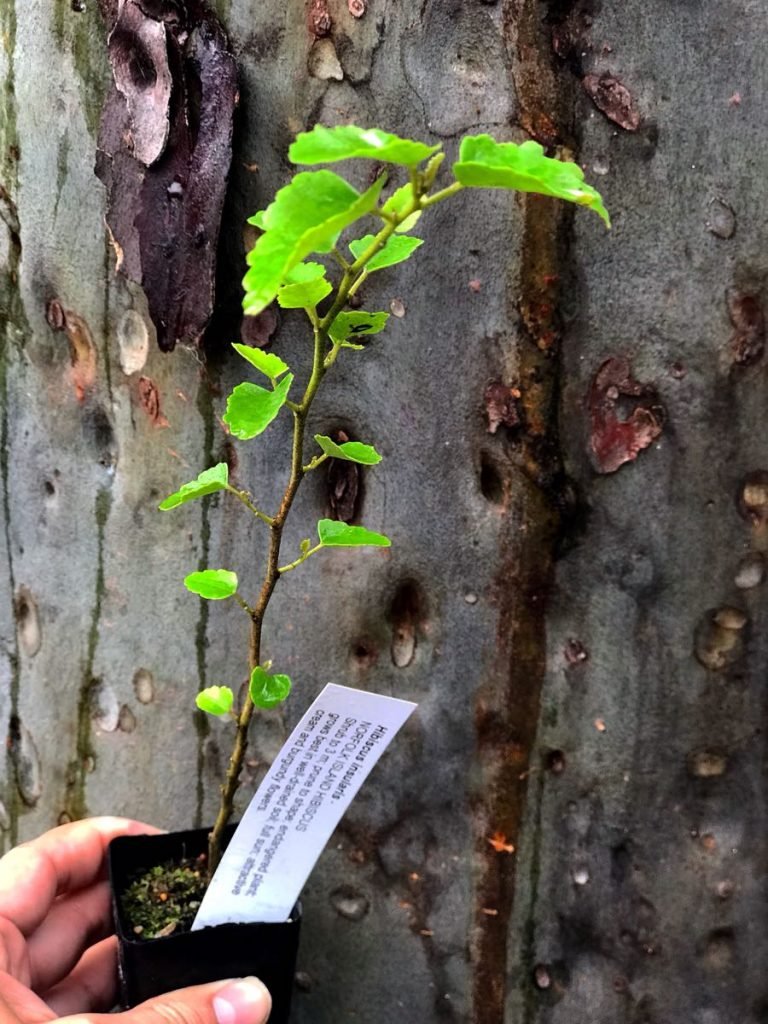
Norfolk Island Hibiscus
As I left the propagation bee this morning I was given a young endangered Phillip Island Hibiscus – Hibiscus insularis. It is such a rare plant, found only on a small barren island south of Norfolk Island.
This 190 hectare island was devastated due to the introduction of pest species such as pigs, goats and rabbits during Norfolk Island’s penal colony era. These animals caused the destruction of plants, leaving the island almost completely devoid of vegetation. The effectS of massive erosion, gave the island a reddish brown colour.
The entire natural extent of the species is just two small clumps, and each clump apparently consists of multiple stems of a single genotype.
https://en.m.wikipedia.org/wiki/Hibiscus_insularis
This critically endangered plant has been propagated to increase numbers and has been brought back from the brink of extinction. However, its genetic diversity is extremely low.
Stories like this remind me of the importance of preserving our natural heritage and biodiversity. It also reminds me of how easy this can be lost forever.
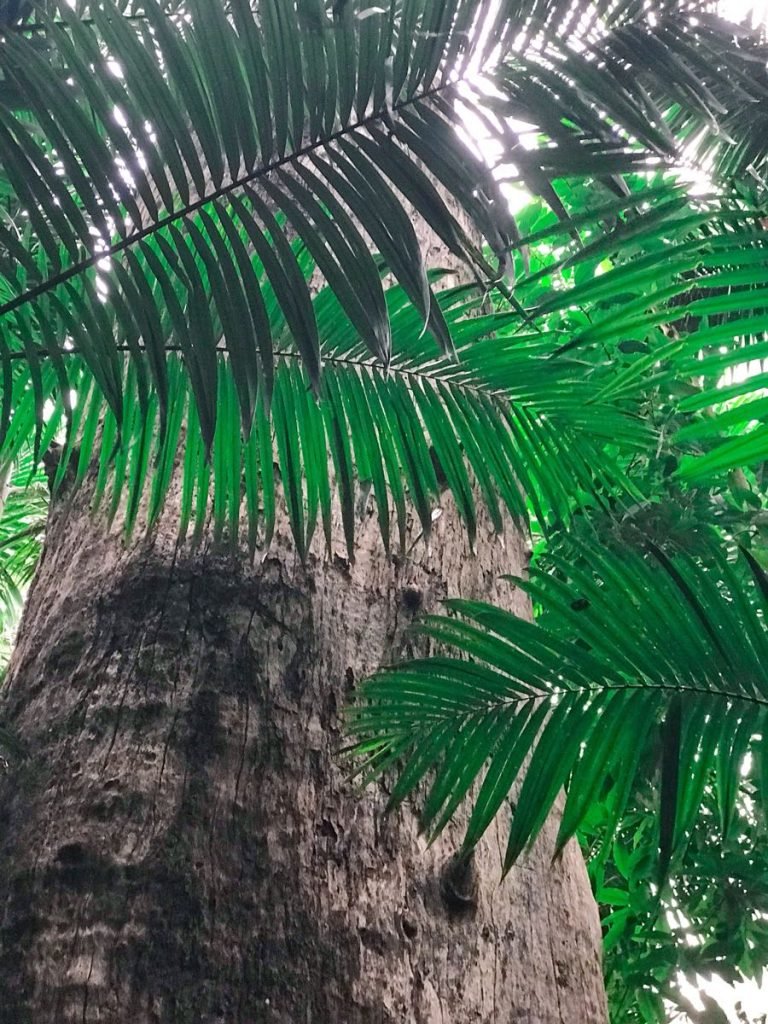
Esme Lahey Environmental Park
After this morning’s propagation session I decided to go up to Tamborine Mountain. It was drizzling yet I wanted to soak in the beauty and biodiversity of this incredibly beautiful area.
Esme Lahey Environmental Park is a tiny 1.5 ha patch of forest set amongst surrounding residential properties. It has a small creek that runs through the forest.
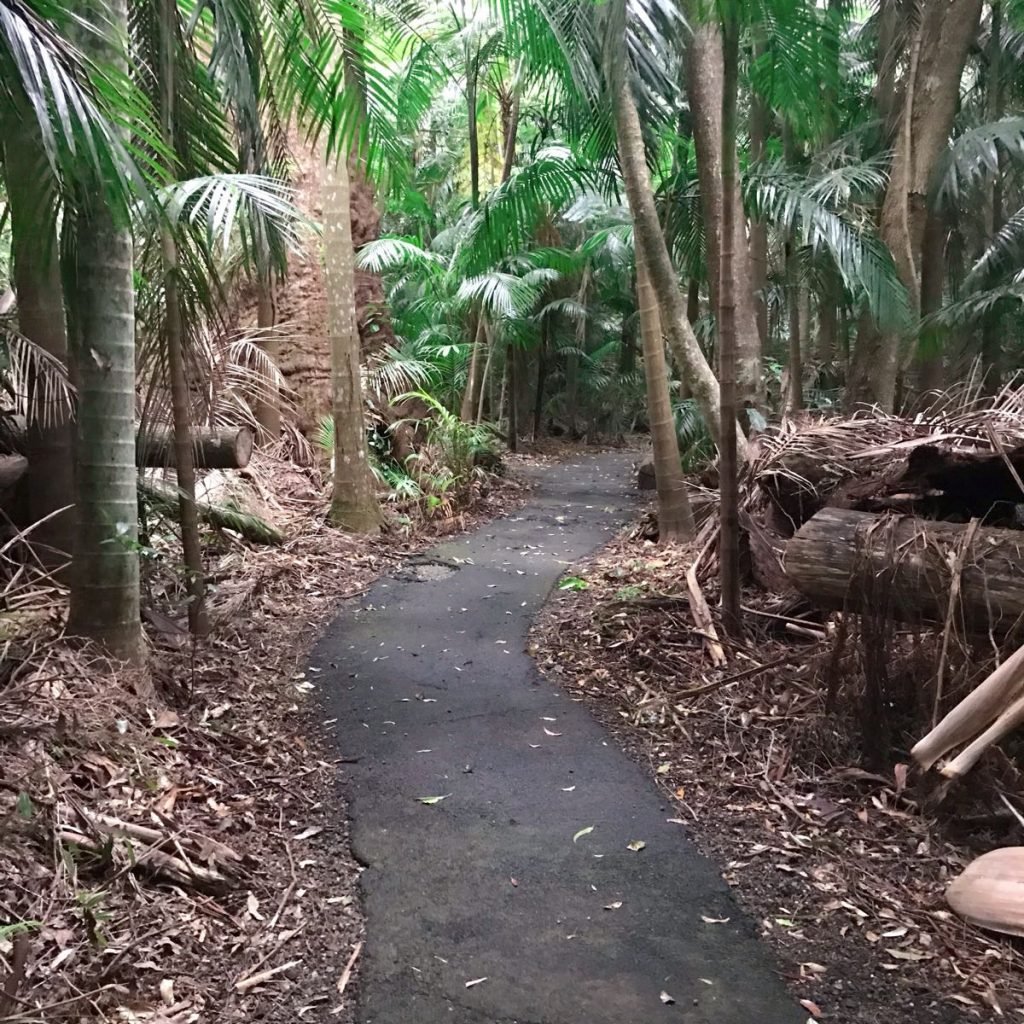
The park is remnant temperate rainforest that has been regenerated by local residents and Tamborine Mountain Landcare. A few years ago it was a swampy, weed infested area. Today it is a beautiful slice of green. It is an island of biodiversity which is accessible by all with its flat bitumin pathways and sign posted throughout. Here visitors can learn and appreciate the unique flora and fauna and natural systems of temperate rainforests.
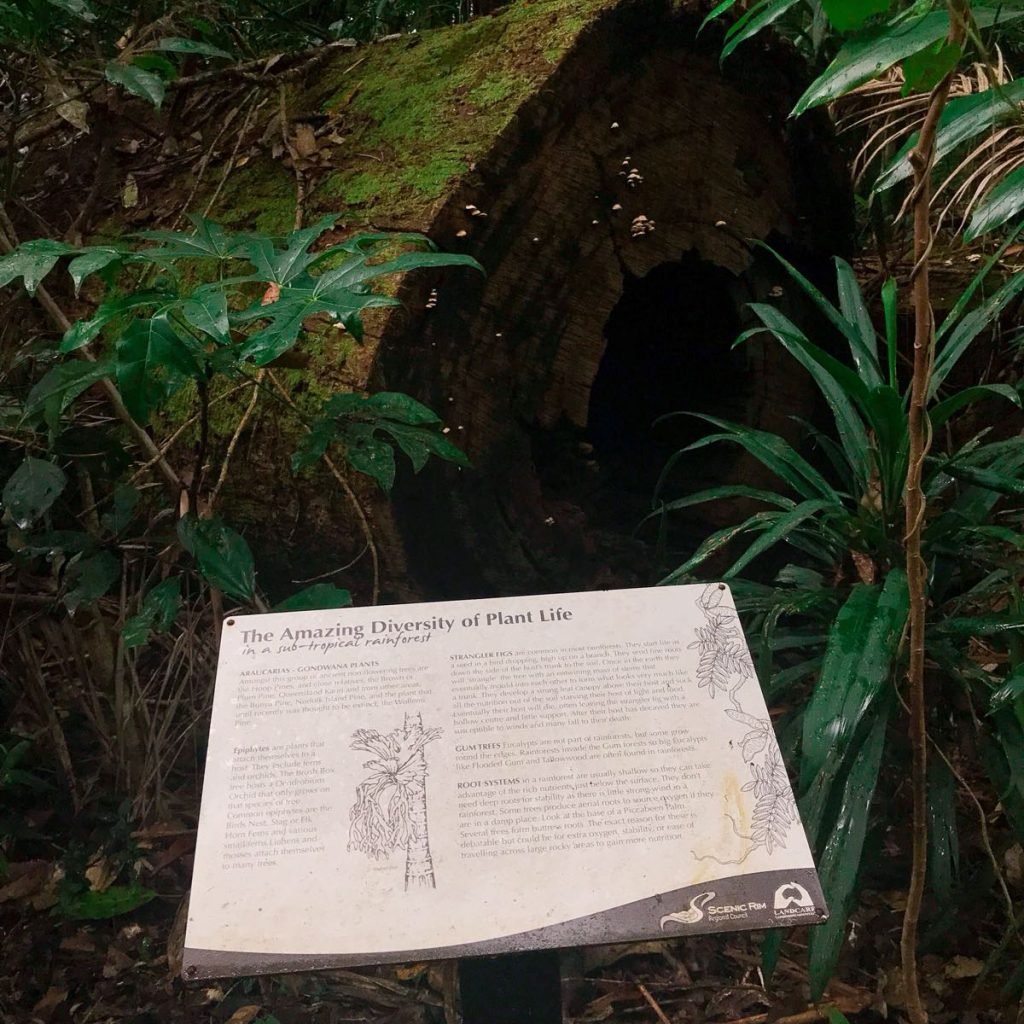
Rainforest Corridors Project
A brochure at the start of the walk describes how Tamborine Mountain Landcare is regenerating rainforest on the mountain. Their plan is to connect remnant rainforests by planting up creeks and valleys to allow the movement of fauna and the transference of plant species.
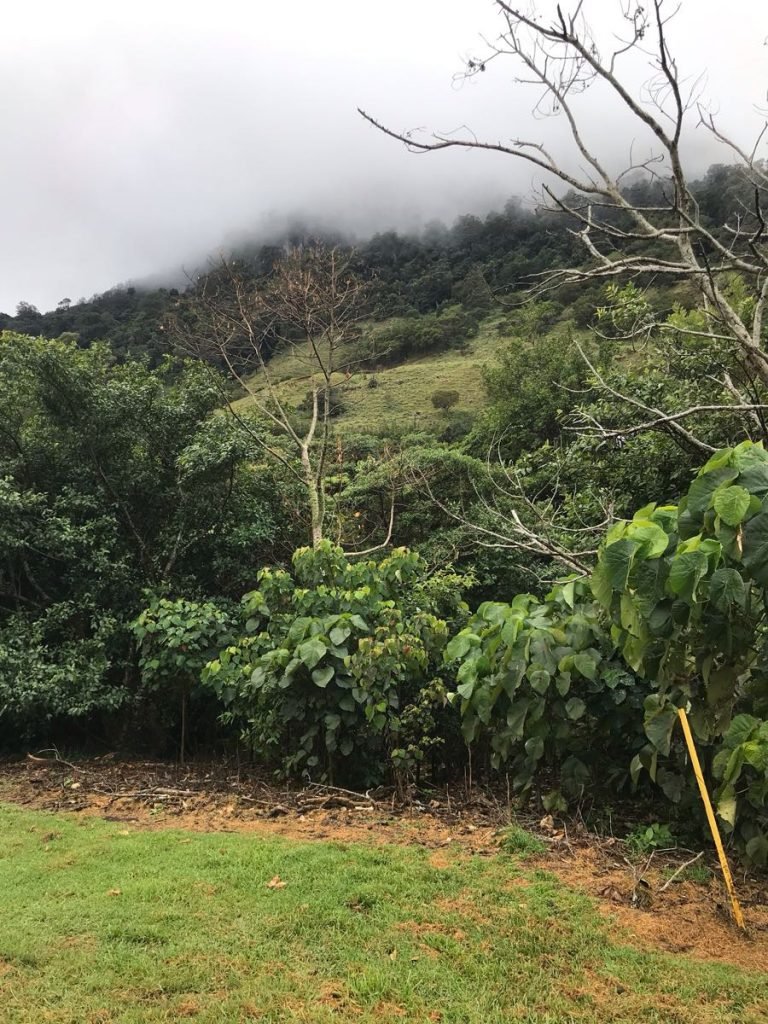
Bioconnecting
The previous weekend I was privelged to join the Gold Coast Catchment Association for their annual crawl. This year it highlighted the work local groups and contractors are doing in Numimbah Valley to restore, regenerate and reconnect forest habitat.
I was inspired by the passion and can-do attitude of these people and groups who literally get their hands in the dirt and get things done. They don’t talk about helping and healing the environment, instead, they are on the ground quietly and humbly doing their thing.
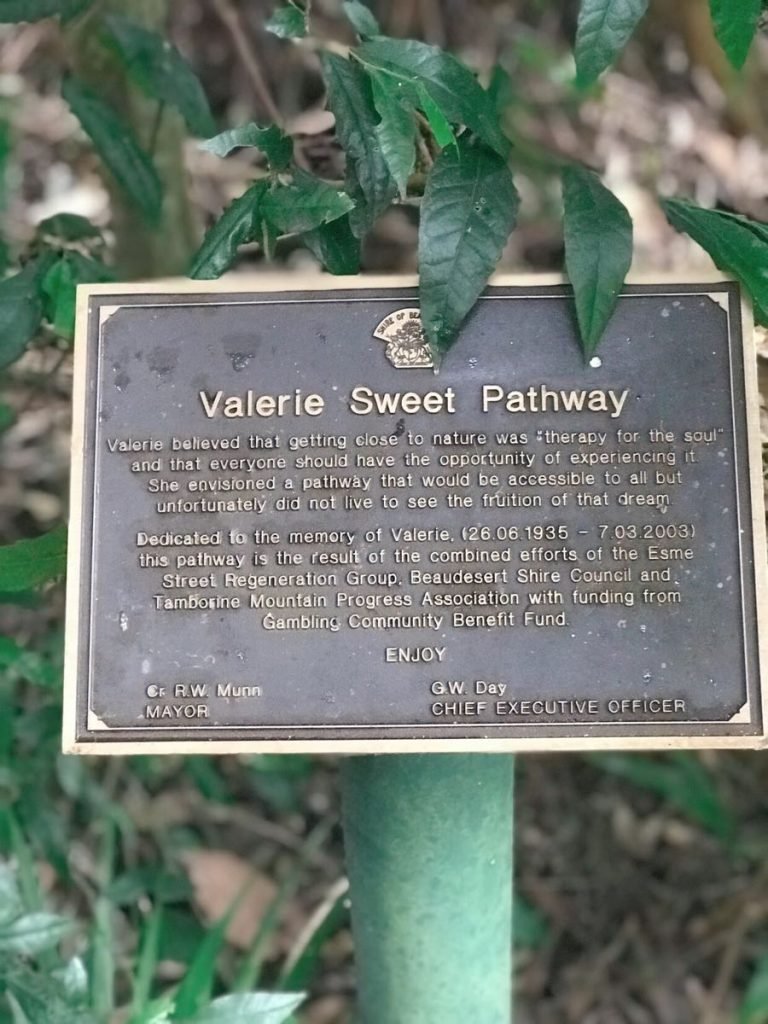
Humus Beings
I have discussed in previous blogs about how the word ‘human’ comes from the word ‘humus’ or ‘earth’. We are literally ‘earthlings’. Yet the true earthlings are those that humbly go about healing the earth – who are humble, and open to the earth teaching them.
Humility comes from the same root as humus and human. I experienced last week a lot of this in the people I met. They didn’t claim to know it all, even those who have been working in land restoration for decades. Instead they allow the earth to teach them through observation.
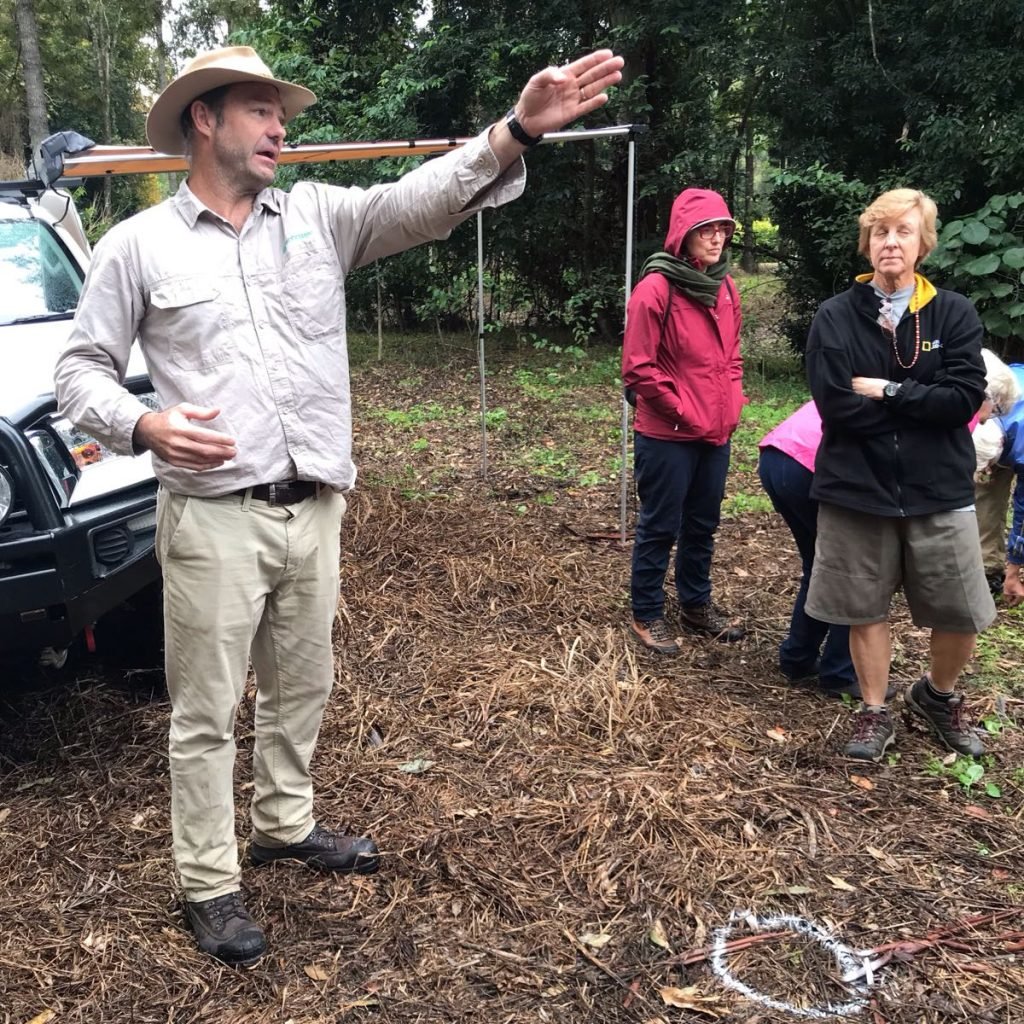
Earth Wisdom
One of the key learnings I picked up from these people was to simply slow down and allow the earth to reveal its secrets.
Rather than going into an area and removing every single noxious weed and then mass planting at once, it was better to have patience and do things in ‘earth time’.
Many of the areas were heavily weed infested or degraded. For instance, removing all weeds in sloping areas may cause erosion and may require a gentle long term removal of weeds. This prevents destabilisation of banks and soil loss.
Beneficial Weed Retention
Another key learning was that it is sometimes beneficial to keep certain weeds for some time as they may attract birds who in turn help deposit seeds from surrounding forests and so assisting the native regeneration of an area.
These weed species such as wild tobacco provide perches and shelter for birds as well as help maintain a microclimate in the forest.
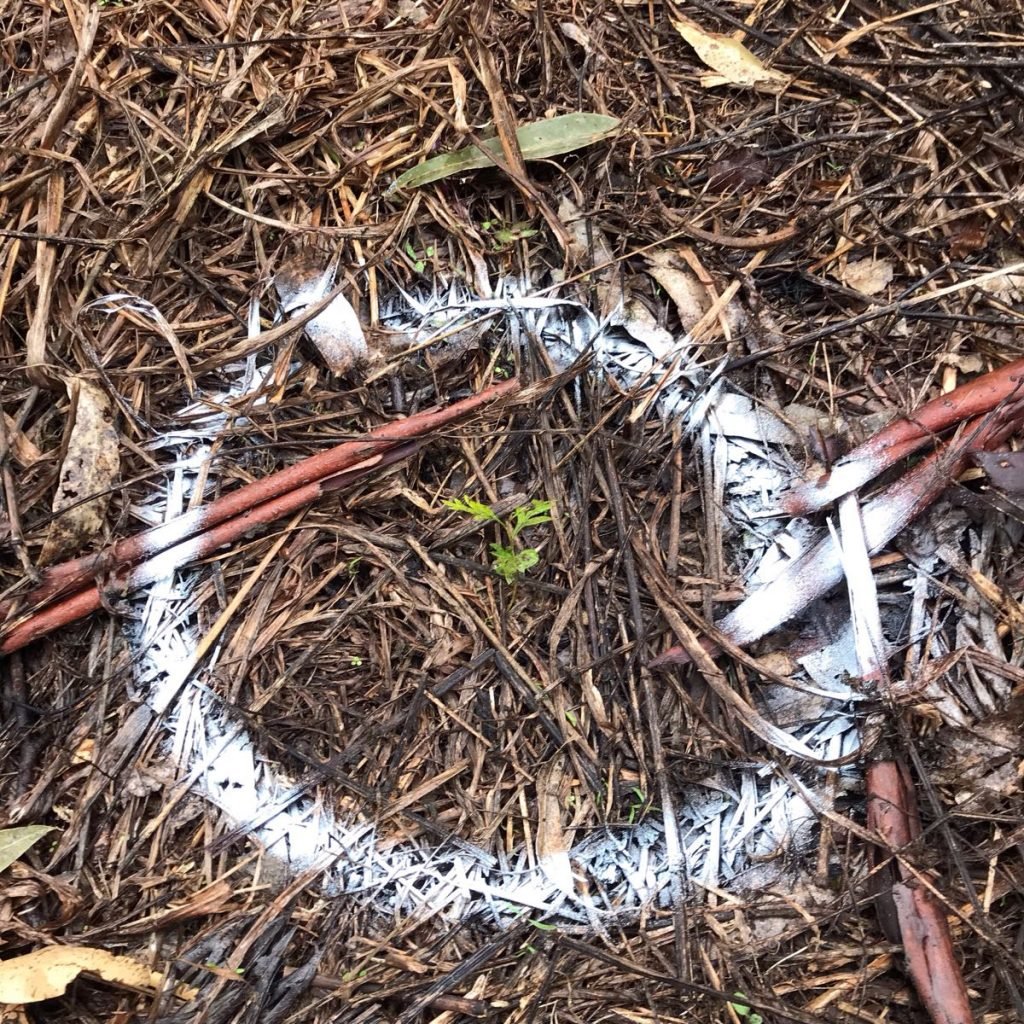
Letting Nature Take It’s Course
Sometimes, what I learned, was all we need to do is give nature a helping hand and then just let nature take its course.
By removing weeds over a period of time we give nature a chance to regenerate an area naturally. Often, once weeds are removed, it gives a chance for dormant seeds to begin to sprout. It is then a matter of visiting a site regularly, knowing which seedlings are weeds, removing them and allowing the native seedlings to grow.
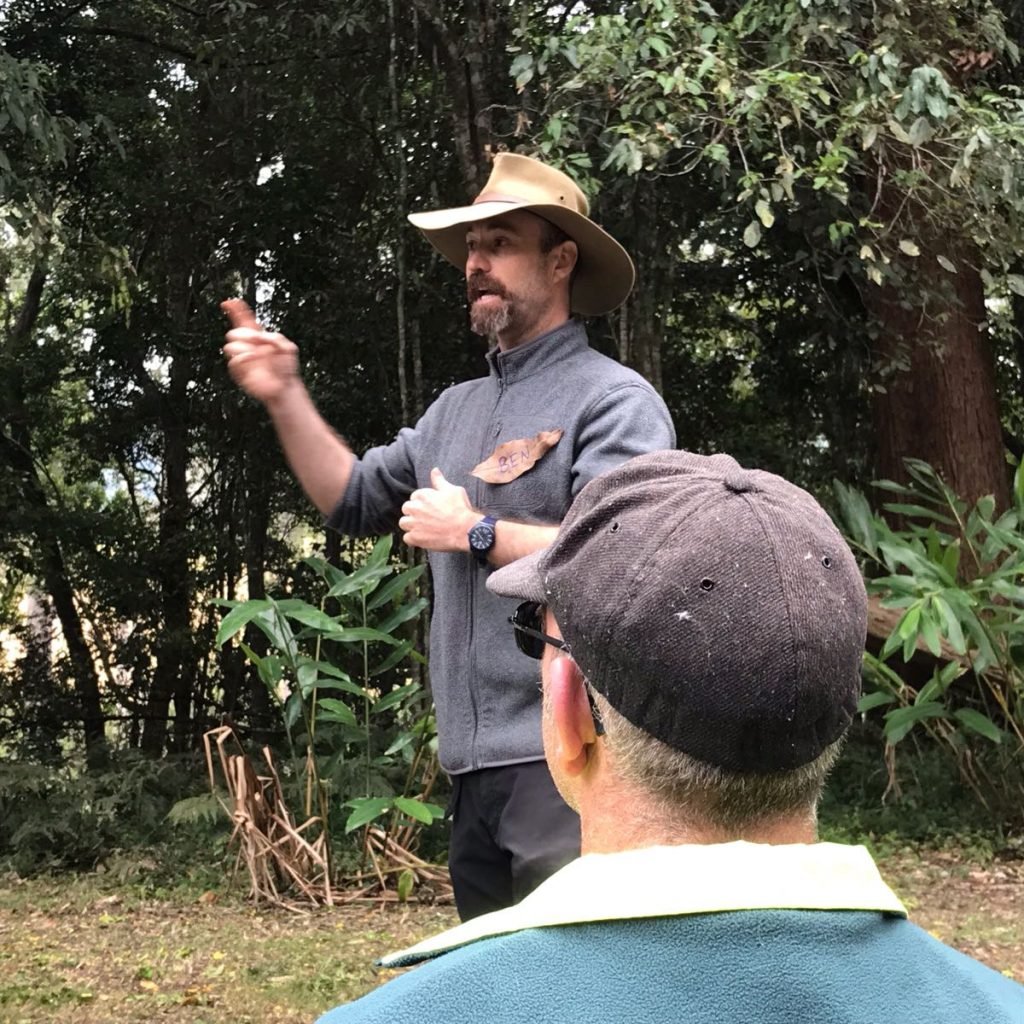
Humble Beings
What is probably the biggest learning of the past couple of weeks is that of all the people I have met who are doing amazing things with the environment, none of them claim to know everything.
They are like pioneer species on the edge of a rainforest. They lean towards the light and grow fast with newly gleaned knowledge. They are continually being open to allowing the earth to teach them.
From propagating plants, to revegetating and restoring degraded environments, no one has all the answers. It is a continual learning curve where even university trained scientist with years of field experience still learn new things from those on the ground.
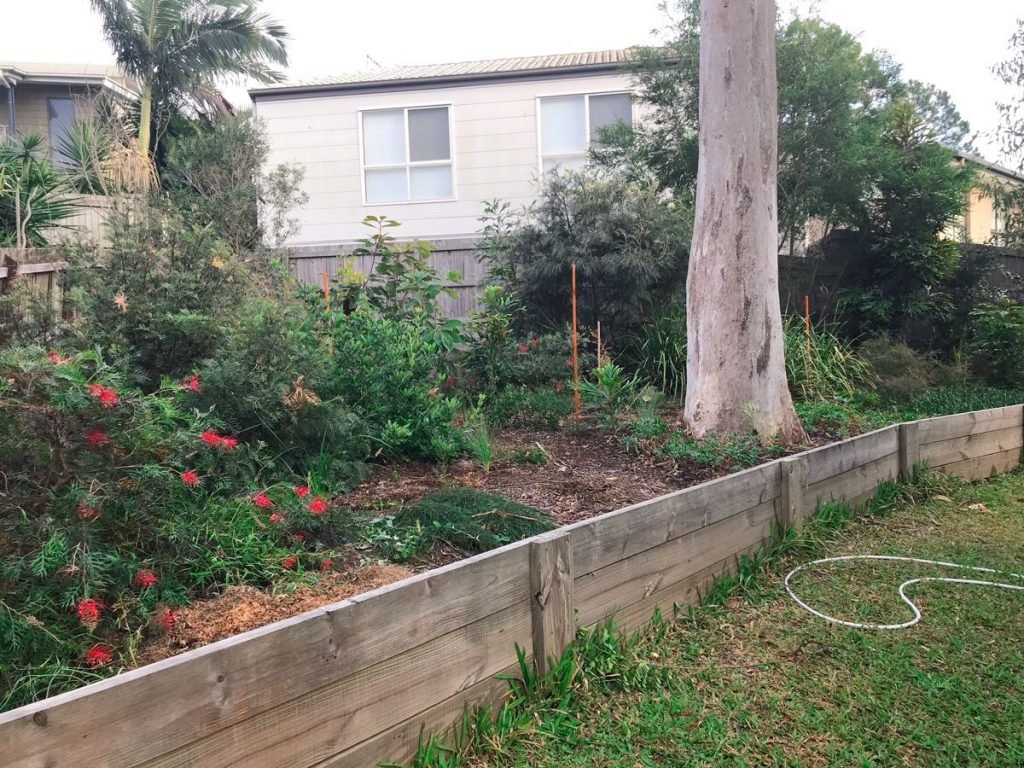
Grounding Experiences
I have spent the last few months planting and experimenting with my small patch of dirt. I have over 100 plants in a 100 odd square metre tiered garden plot. It has been a learning curve seeing how different species grow and thrive in different parts of this garden and others don’t fare so well.
It is through getting my hands in the earth and experimenting rather than purely through reading books can we really learn.
Combine this with the practical wisdom of those around us, from scientists, gardeners, citizen scientists, commercial growers, all everyday people, can we all continue to build a knowledge base.

Greenitude
Walking through the patch of remnant rainforest today, having learned a lot through the humbling experiences of those helping to bring back forests to health and those who have a passion growing native plants, it added another level of appreciation in me.
There is a certain buzz I feel, that is no doubt commonly experienced by gardeners, scientists, and nature lovers. It is a feeling of deep gratitude and appreciation for the incredible biodiversity of our natural world.
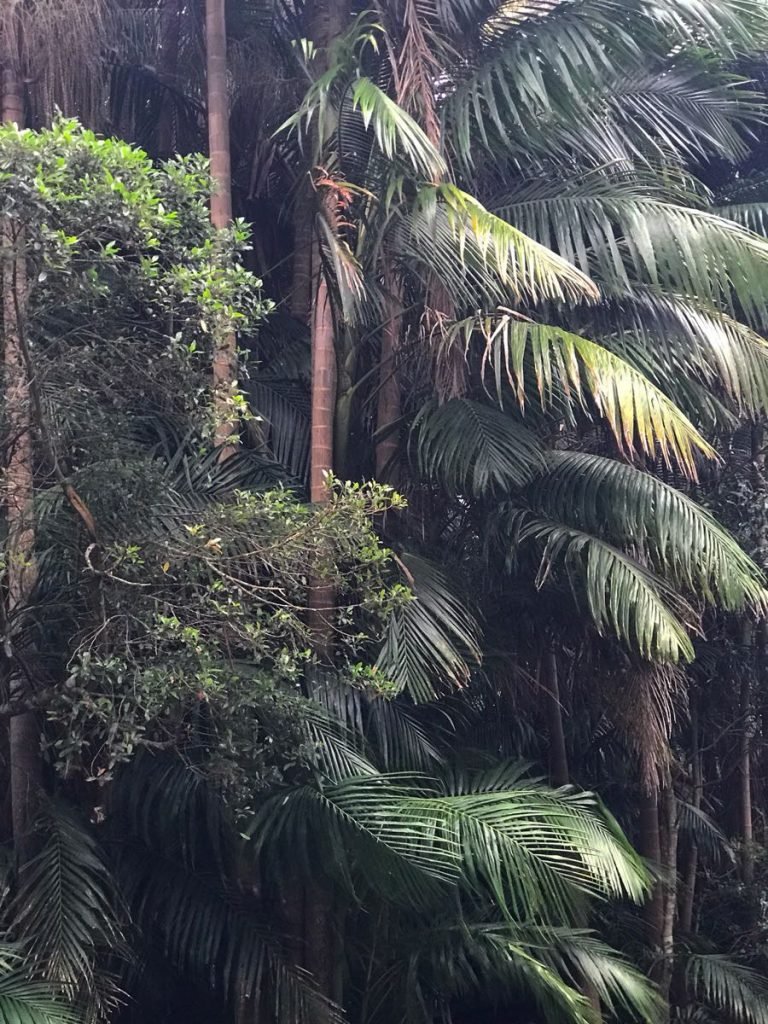
For me, walking through a tiny patch of restored remnant forest, or finding out the back story of a critically endangered plant on a desert island where only two clumps remain, to simply observing plants growing in my patch of dirt fills me with great joy and passion. It is this feeling I have often referred to as greenitude.
Journeying
Knowledge is best gained through experience, whether our own or through the wisdom of others. Walking through Esme Lahey Environmental Park today I recognised that passion that drives fellow nature lovers to give back to their environment and get their hands in the dirt.
As I turned each bend in the path I better understood the energy and vision that went into restoring this remnant forest.
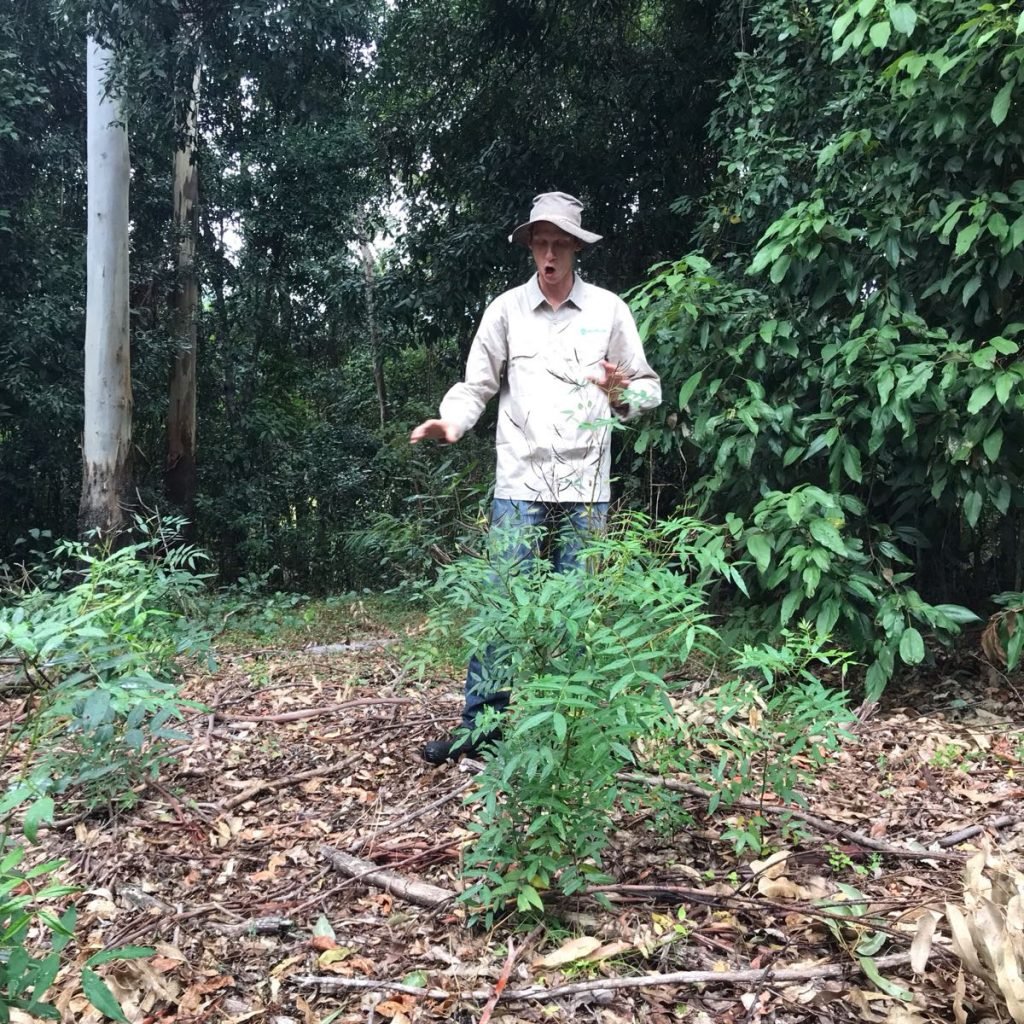
Stay Humble
For everyone, each day is literally part of a journey of discovery. The word ‘journey’ comes from Old French and meant ‘day, a day’s travel, or a day’s work’.
Where will tomorrow’s journey take you? What new things will you learn? Remember, as Steve Job’s once said, to ‘stay humble’, to never stop learning and most of all to always stay close to the ground and your hands in the earth.
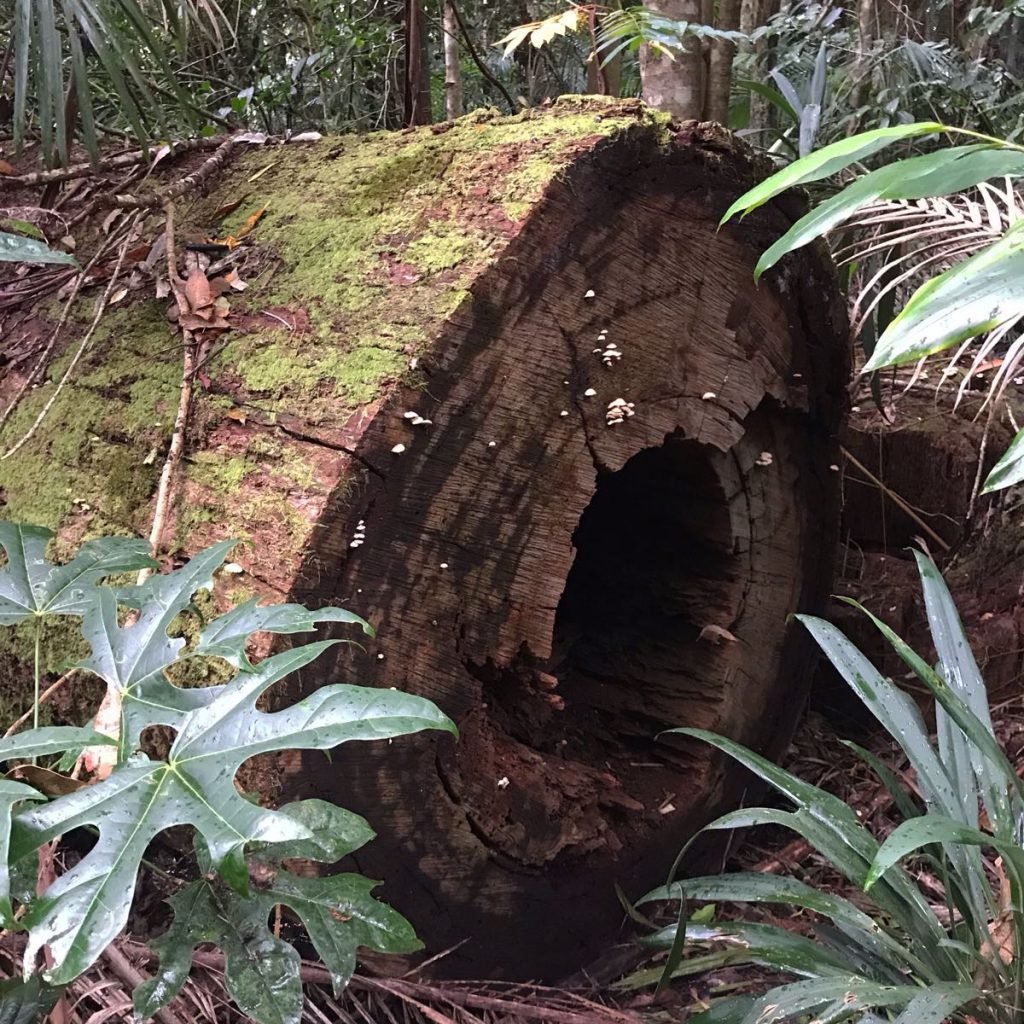
The Dirt
One last thought. Isn’t it ironic how our Western culture has become averse to the very thing that gives us and teaches us about life.
We talk about getting ‘dirty’, and about ‘soiling’ our clothes. The earth that gives us life, the earth in which we grow our food has become something we need to wash our hands off.
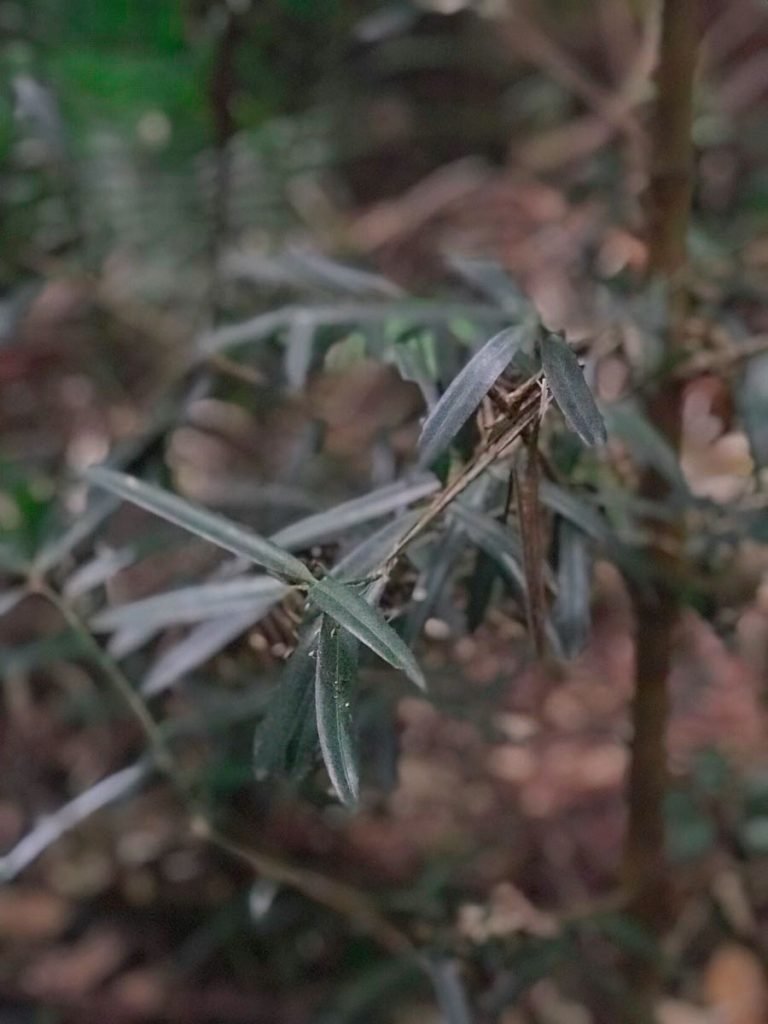
Saving The Earth One Handful at a Time
Even the roots of the word ‘dirt’ means ‘excrement’. Something that is excreted, filth to be removed from us.
Many speak about saving the environment, and yet are afraid to get down and dirty. I think by simply getting our hands in the earth regularly, by growing things, by learning from nature, that we can become more humble, more human, and ‘save the earth’ and ourselves simultaneously.
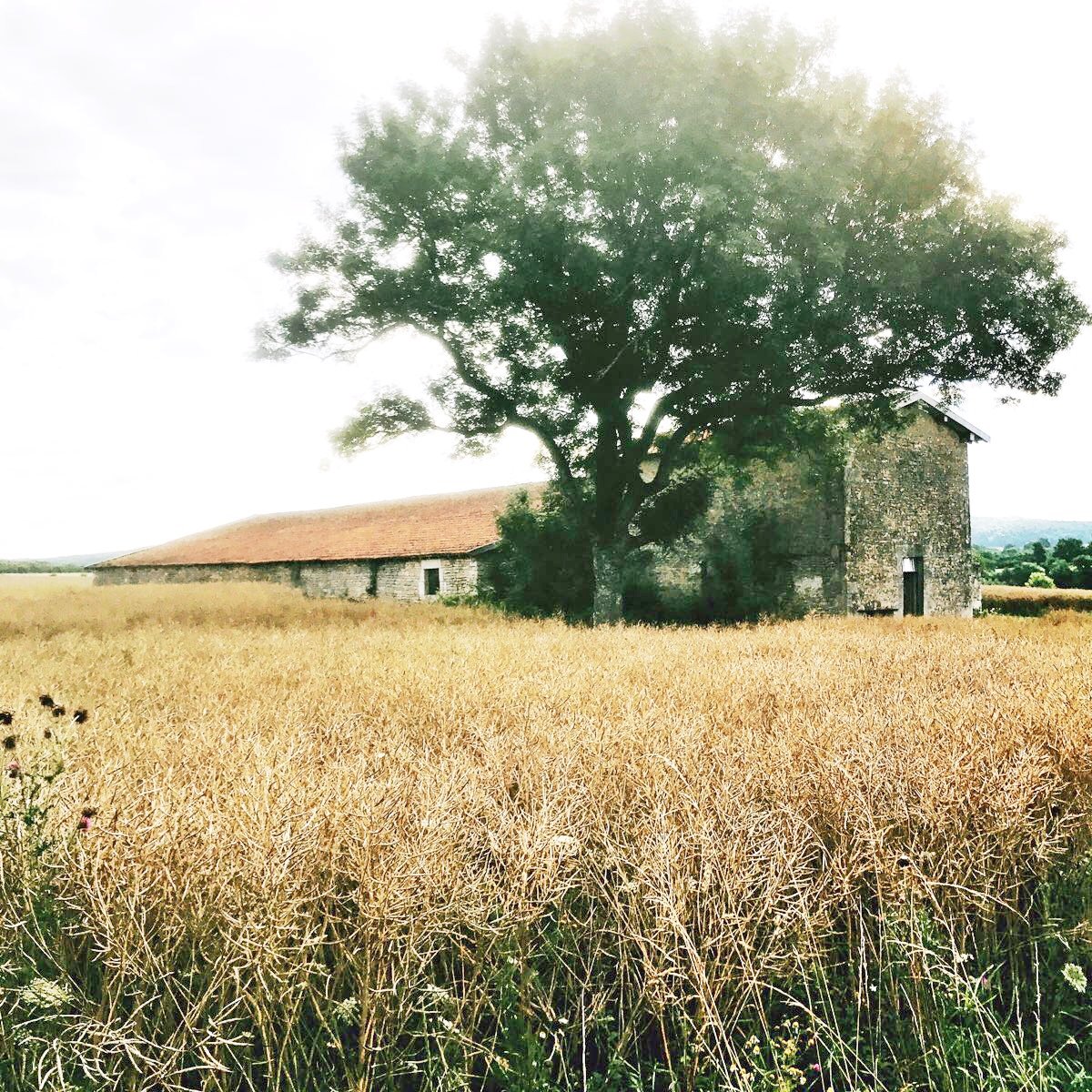
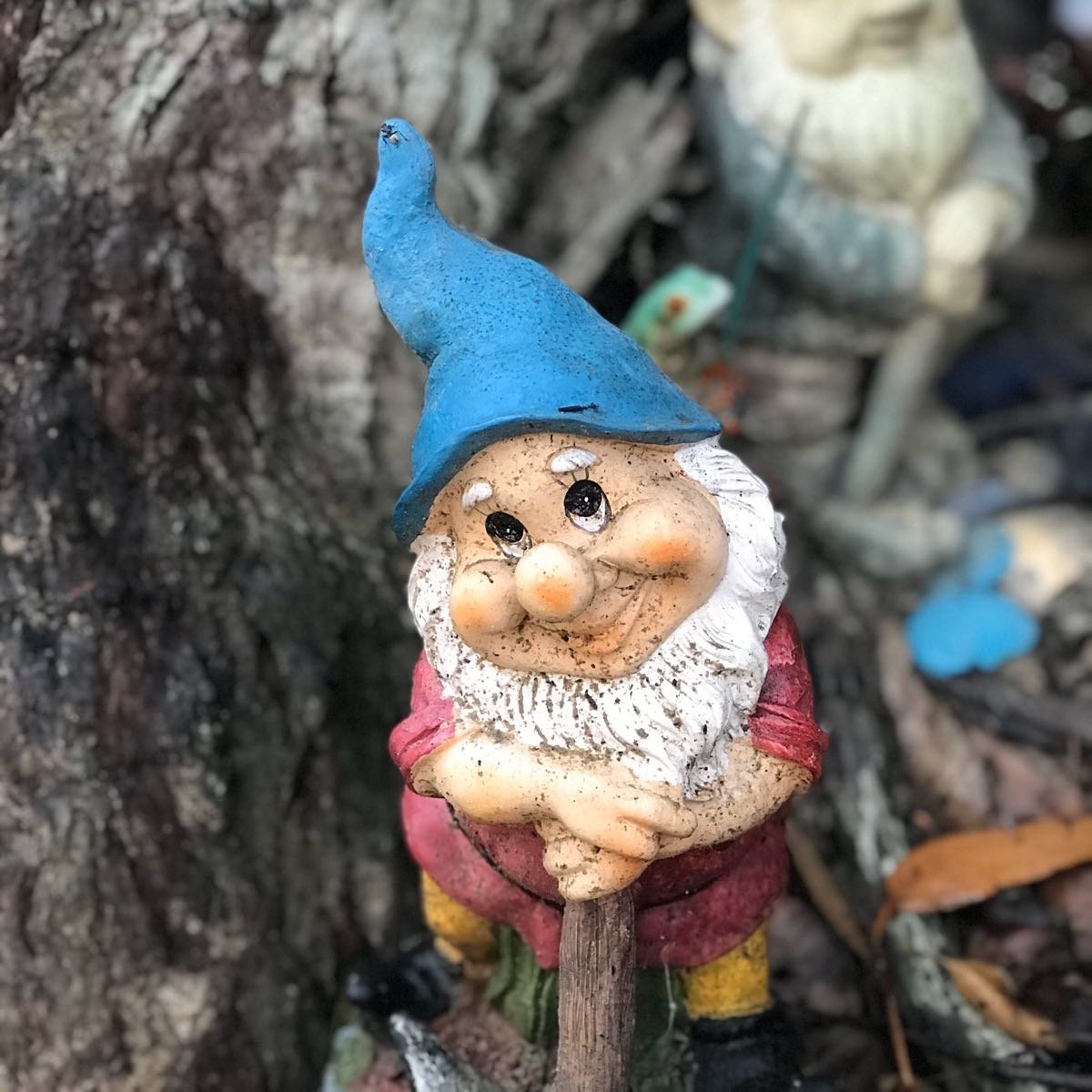
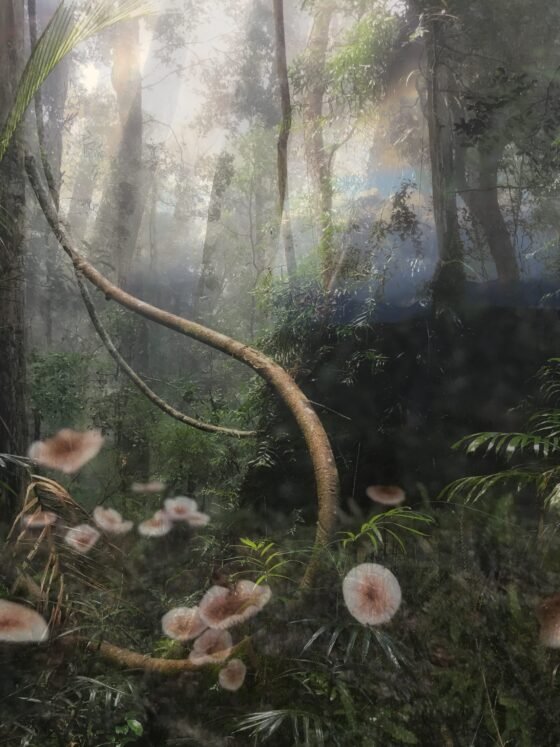
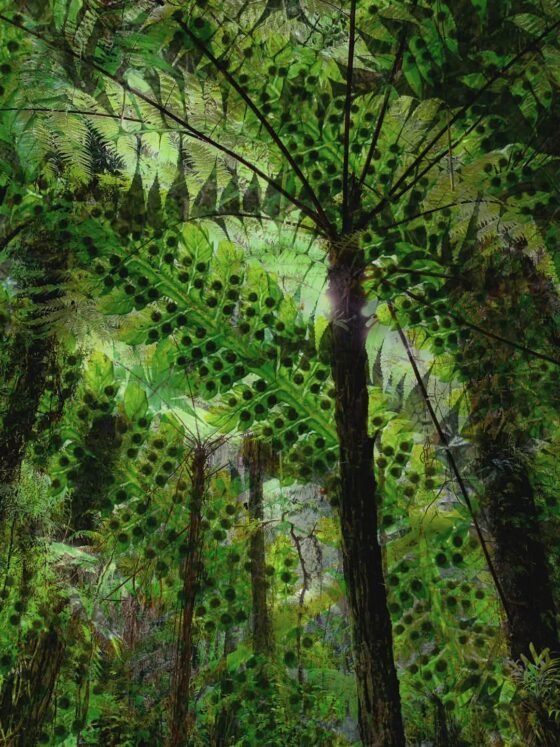
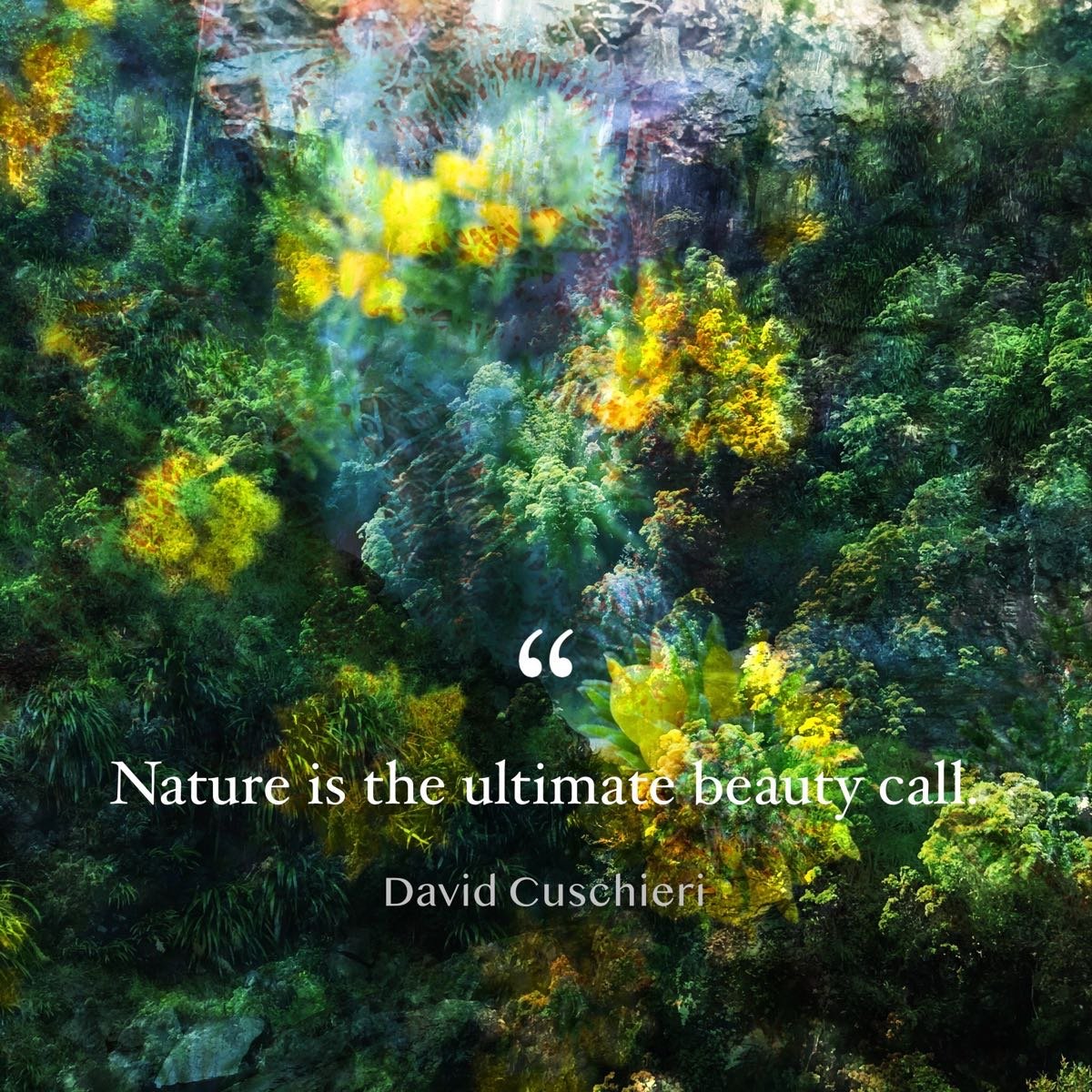



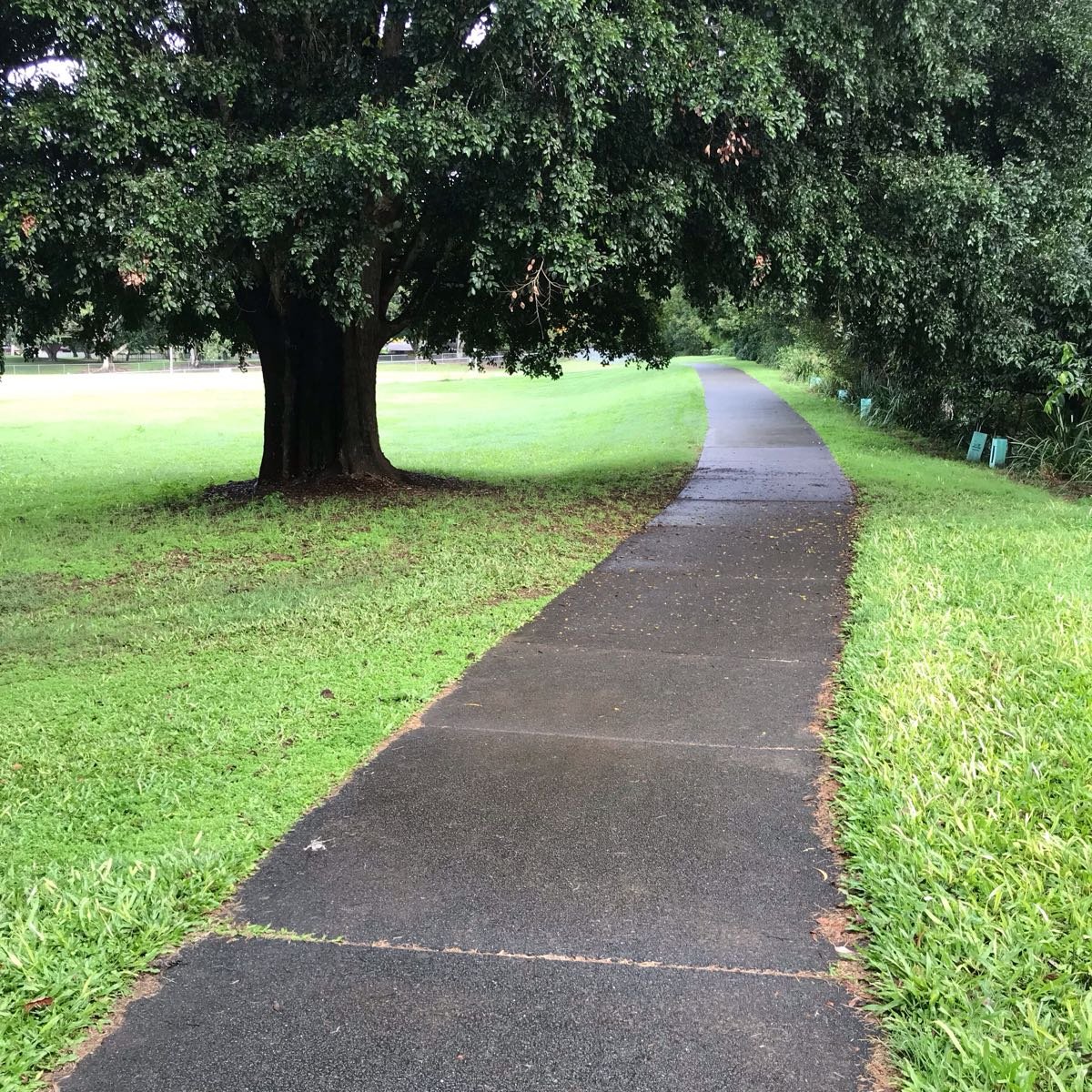
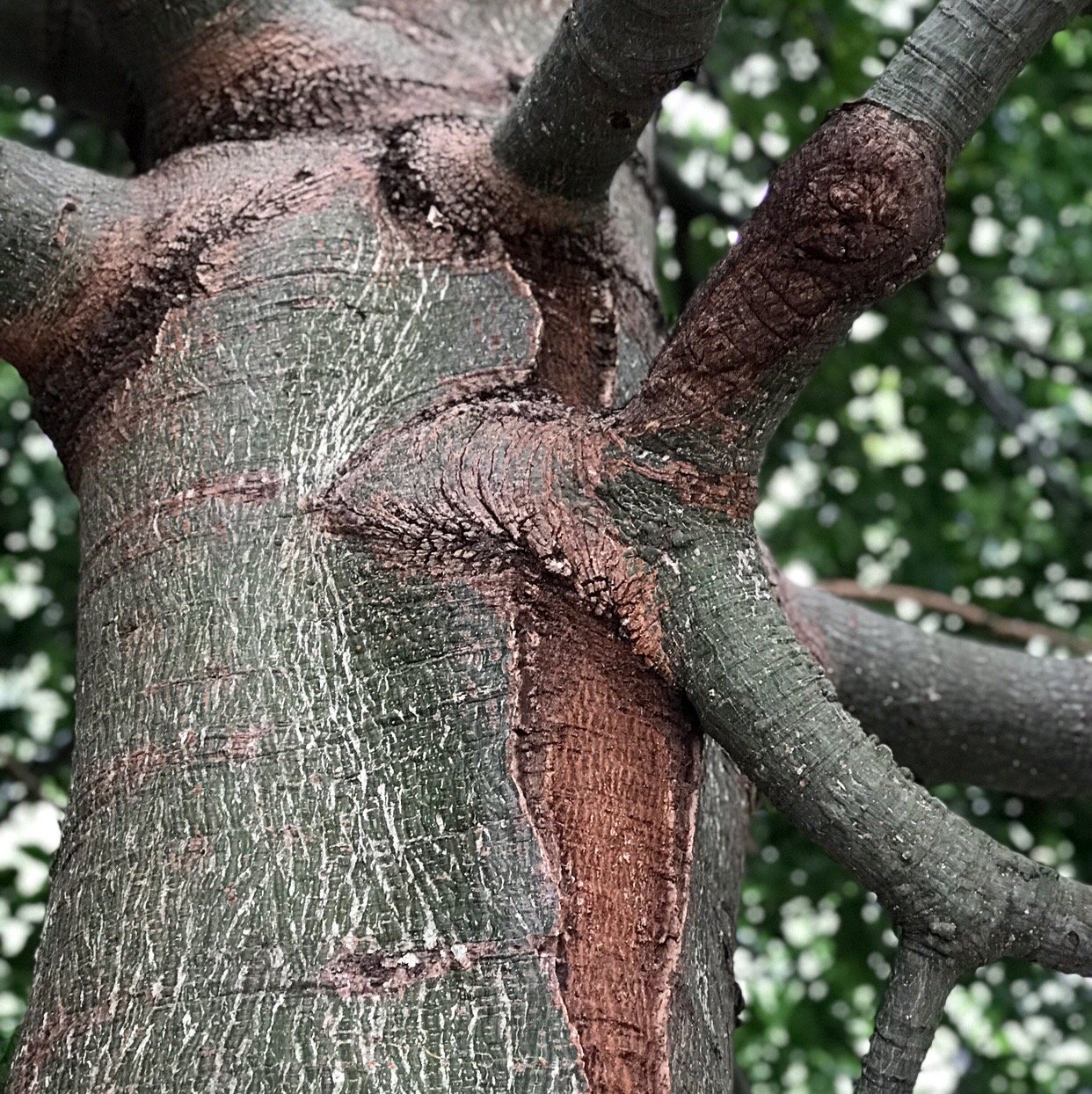

Denise Lepore
06/16/2019Thanks David – – as always lovely photographs and thoughts!! Thank you for sharing both!!!!
David Cuschieri
06/17/2019Thank you Denise. Glad you enjoyed the read. xx : )
Paul Herman
06/17/2019You dirty man. Great photos and philosophy.
The dirt is just out the front door.
Its good to plant children in it, even if they eat some.
David Cuschieri
06/17/2019Yes its good to be a dirty man : ) Extreme hygiene is literally killing us. Yes, good to plant kids in the dirt and to eat some too. We need more bugs in us so that we can develop greater resistance and less allergies.
Loretta
06/17/2019Really inspiring! Thanks for attending a few of our Native Plant Qld Gold Coast activities. It’s a small but passionate group always eager to share our time and talents.
David Cuschieri
06/17/2019Thank you Loretta. It’s a great bunch of people with lots to offer and share. Hope to join the next activity with you all.